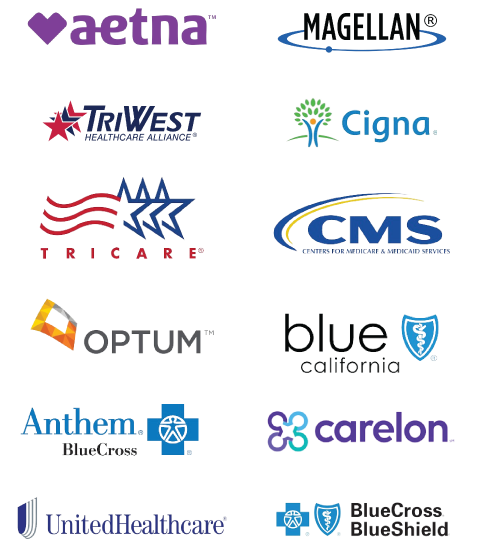
While psychotherapy has become the first line of treatment for most anxiety disorders, many of us need prescription medication before, during, and sometimes after that treatment. Today, Cognitive Behavioral Therapy and Acceptance and Commitment Therapy are considered the primary means of treating anxiety – by helping people learn to deal with anxiety in a healthy way. Unfortunately, that’s not always good enough and you may require lifelong medication depending on how your brain and body work.
Here, medication is used to mask or relieve symptoms, making them easier to deal with, or removing some of the chemical response in the brain. No medication will cure an anxiety disorder, meaning there are no drugs to treat anxiety disorders in the traditional sense, only to treat the symptoms.
The following drugs are commonly used to treat anxiety and panic disorders.
Antidepressants
Anti-depressants are very commonly used to treat anxiety disorders because there are significant overlaps between the two disorders. Here, antidepressants may help the brain to regulate serotonin and dopamine production and absorption, leveling out the mood and general anxiety. In fact, these medications are so effective at treating anxiety that they are the first medication chosen to treat anxiety when looking for a long-term solution.
SSRIs – Selective Serotonin Reuptake Inhibitors are used to regulate how the brain reabsorbs serotonin, with the eventual goal of regulating levels in the brain. This medication normally takes 2-6 weeks to take effect and must be tapered off of very slowly. For this reason, SSRIs are a very long-term treatment. However, SSRIs like Sertraline (Zoloft), Citalopram (Celexa), Escitalopram (Lexapro), and Fluoxetine (Prozac) are some of the most common medications for treating anxiety symptoms.
SNRIs – Serotonin and Norepinephrine Reuptake Inhibitors are a similar drug to SSRIs except they also work to regulate the production and absorption of Norepinephrine. This chemical functions as both a neurotransmitter and a stress hormone, meaning it can have significant impact on anxiety. For example, if you stress, you release the hormone, which then impacts anxiety. Regulating it can help your body to stop producing it when it’s not needed, therefore potentially reducing anxiety from a chemical level.
Both of these drug classes are tolerance inducing, meaning that you will have withdrawal symptoms when quitting the drug. However, they are not addiction-inducing and cannot be abused to feel good in any way. That makes them extremely safe to take for long periods, even if you have existing issues with substance abuse.
Benzodiazepines
Benzodiazepines are a class of muscle relaxers that were, as recently as 2018, used as a first line of treatment for anxiety and panic disorders. This drug class causes significant calming effects, meaning it can often be used to stop panic attacks. That makes benzodiazepines a powerful option for people with debilitating panic attacks.
That makes benzodiazepines a first-line treatment for helping people to transition into therapy. A short 2–5-week prescription for benzodiazepines can help someone to mitigate panic attacks long enough for therapy to start taking effect or for another medication such as an SSRI to take effect.
However, benzodiazepines are highly addictive and are very easy to abuse. Therefore, most modern doctors won’t prescribe benzodiazepines for more than a few weeks. When you do get a prescription, you’ll also need a Risk Evaluation and Mitigation Strategy (REMS), in which you won’t be able to take the medication if you have a history of substance abuse or a substance use disorder. It’s therefore important to discuss your history of drug or alcohol abuse with your doctor upfront, because benzodiazepines can be extremely addictive. The best way to mitigate risk is to ensure a very short prescription with extra checkups or not to take them at all. And, individuals with a history of drug abuse should never be given a longer-term prescription.
Popular benzodiazepines include alprazolam (Xanax), clonazepam (Klonopin), diazepam (Valium), and lorazepam (Ativan). All of these are available as both a generic and brand name prescription medication.

Beta Blockers
Beta blockers are a blood-pressure medication that works by reducing the impact of adrenaline on the heart. It forces the heart to slow and relaxes blood vessels, normally resulting in muscle relaxation and improved blood flow. This is increasingly used to treat anxiety as well, by impeding the physical side-effects of anxiety. This can help to prevent escalations in panic and anxiety by preventing the heart from beating too fast. Therefore, beta blockers significantly reduce physical side-effects of anxiety.
Like SSRIs, this medication is non-addictive, safe to use long-term. However, it is important that you discuss your heart health with your doctor before accepting a prescription. Beta blockers cause withdrawal effects including temporary hypertension, tachycardia, and arrhythmia. If you have an existing heart problem, you should not start using this medication without your doctor’s consideration of that heart problem.
Common beta blockers include Metoprolol Succinate (Toprol/Toprol XL), Metoprolol Tartrate (Lopressor), and Carvedilol (Coreg). They’re normally only prescribed if other medications have proven ineffective, largely because they often have significant withdrawal symptoms. Therefore, you won’t likely be prescribed a beta blocker to reduce anxiety symptoms unless you’ve tried and failed an SSRI first or you have significant issues with adrenaline.
Getting Help with Anxiety
Today, the first line of treatment for anxiety disorders is almost always behavioral therapy. However, it’s important that you take your concerns to your doctor, discuss your mental and physical health, and get a reference to a treatment program. Good treatment will assess every part of your health to decide if you need medication to manage in the interim, if psychotherapy-only treatment will prove enough, or to allow you choose which option you need. And, if you do disclose a past history of drug or alcohol abuse, you’ll likely be put on a psychotherapy first track to see if therapy is enough to alleviate symptoms and improve your quality of life.
In either case, it’s important that you get help, disclose your full medical history, and take steps to ensure you are getting the treatment you need to manage your disorder. Good luck with treatment and with whatever medication you are eventually prescribed.
If you or you loved one need help with mental health treatment, drug rehab, or alcohol rehab Compassion Recovery Center is here to help. Contact us to ask about our mental health programs and how we can support your specific requirements as you move into treatment.






